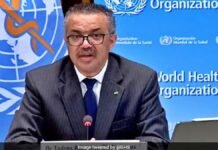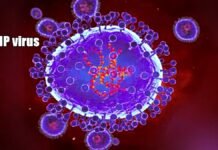
New Delhi: The World Health Organization (WHO) has said that according to the recent assessment, there can be many reasons for the increasing cases in India. The WHO has stated that it includes political and religious programs. The organization has said that in view of India’s Covid situation, there are increasing lines of concern in neighboring countries as well. During this time, the role of the variant B.1.617 of the coronavirus has also been discussed.
According to the WHO, there are several reasons for the spread of the virus in the country, including ‘many religious and political ceremonies, due to which social mixing has increased.’ The WHO’s Weekly Epidemiological Update, published on Wednesday, states that a recent WHO risk assessment in India found that there are a number of reasons behind the increased prevalence of Covid-19 in India, including potentially Increasing infectiousness includes an increase in the proportion of cases of the SARS-CoV-2 variant, with many religious and political ceremonies taking place, with increased social mixing. ‘
At the same time, WHO has also raised questions about not properly following Public Health and Social Measures (PHSM). The update states that B.1.617 lineage was first found in India in October 2020. It has been said in the update that ‘India has again increased the number of cases and deaths, raising the question of the role of B.1.617 and other variants’ (B.1.1.7). ‘

3.62 lakh Covid patients were found in 24 hours, the number of people recovering is close to 2 crores
It has been said in the update that after India, Britain has had the highest number of such cases, whose wires are connected to B.1.617. The UK has recently put it in the category of ‘National Variant of Concern’. While stating on the state of Kovid in the update, it has been said that with 55 lakh cases and more than 90 thousand deaths, a small decrease has been observed in new cases of Kovid-19 this week.
According to the update, ’95 percent of the infected and 93 percent of the deaths in the South Asia region remain in India. Also, India is responsible for 50 percent of the cases and 30 percent of the deaths in the world. The WHO said in the update that neighboring countries have seen increasing numbers of concerns. The first meeting in India this week, B.1.617, has been described by WHO as the ‘Variant of Concern’.






















































